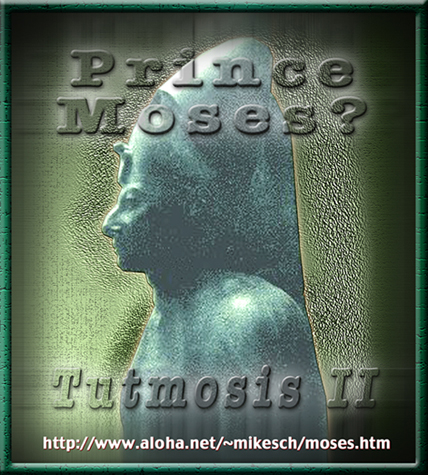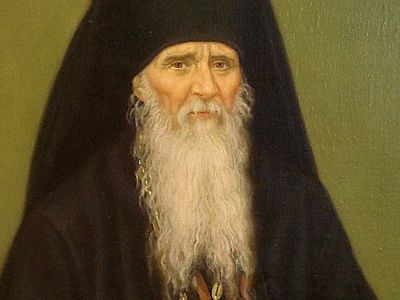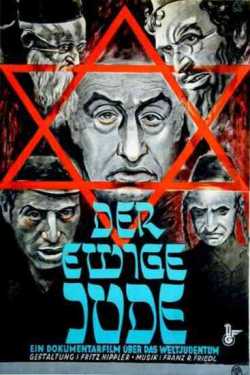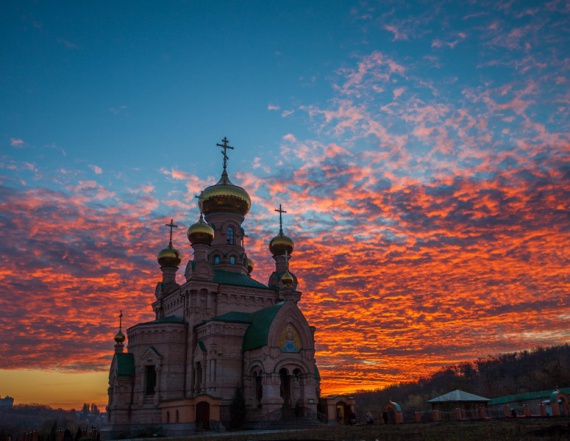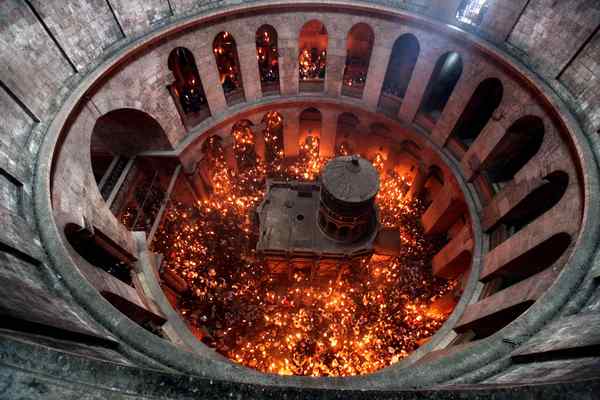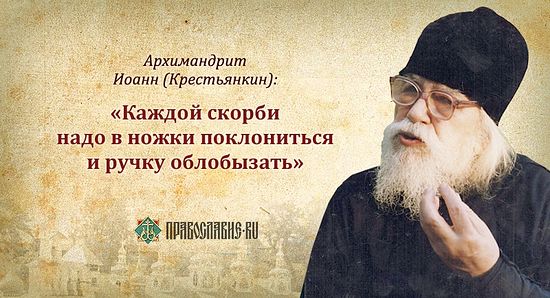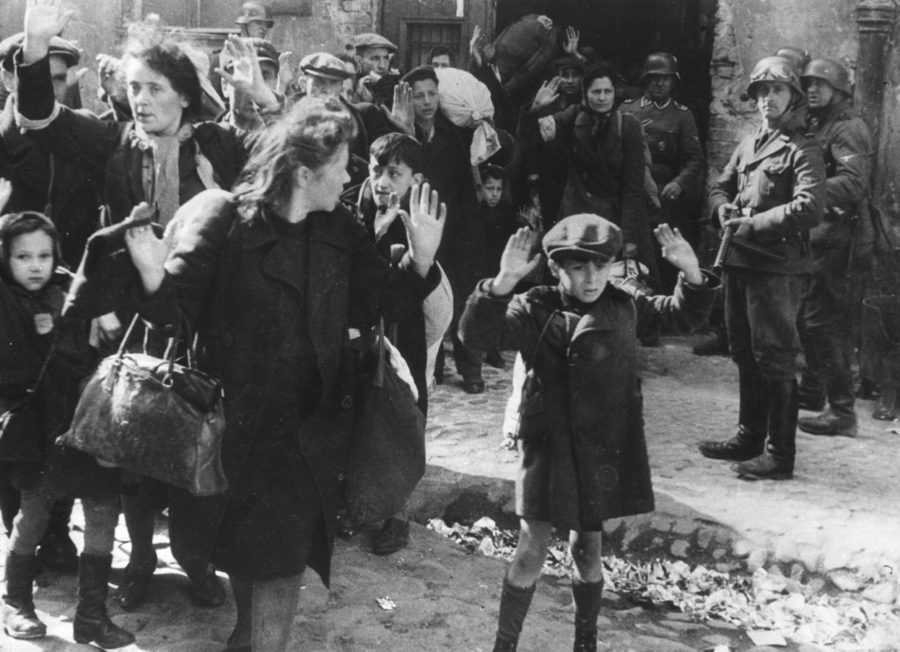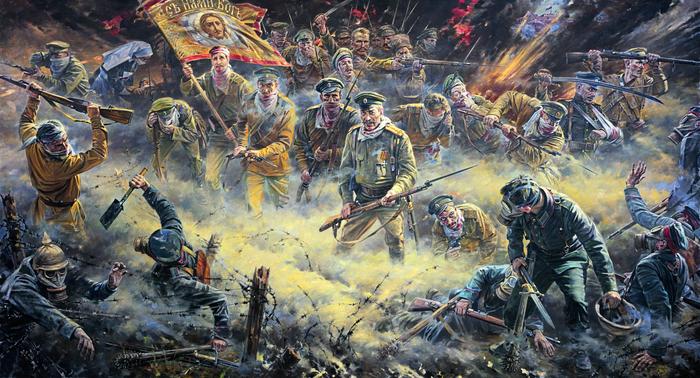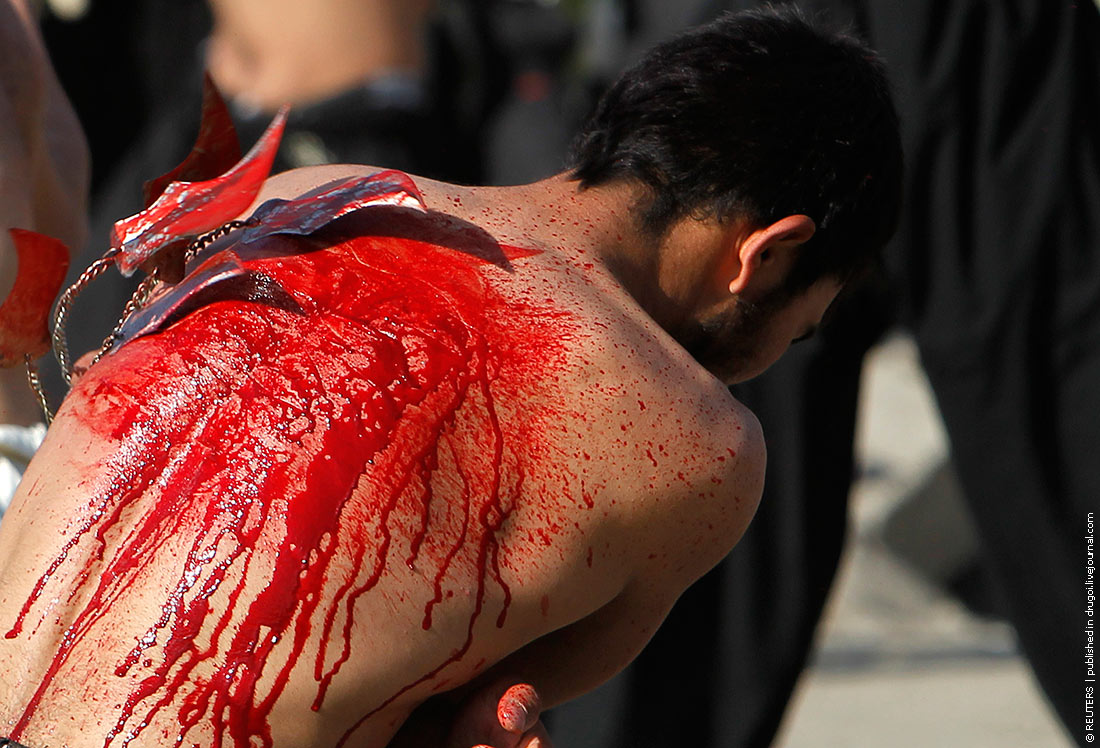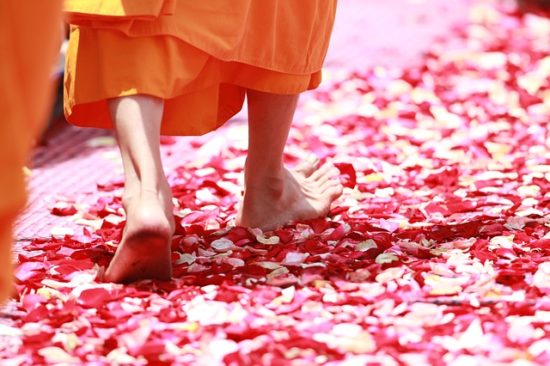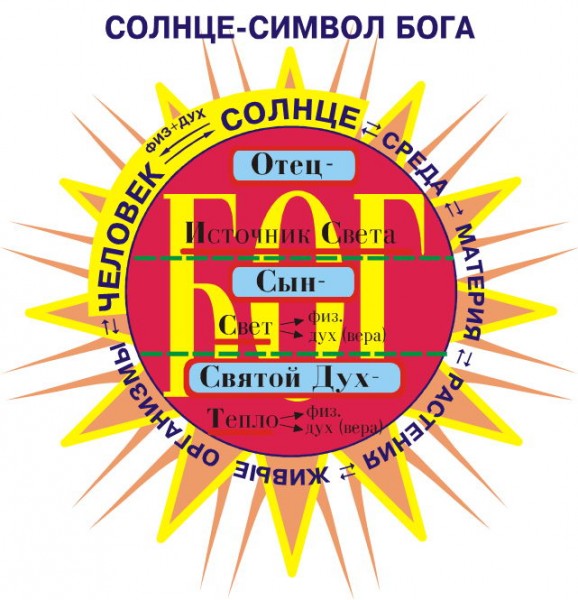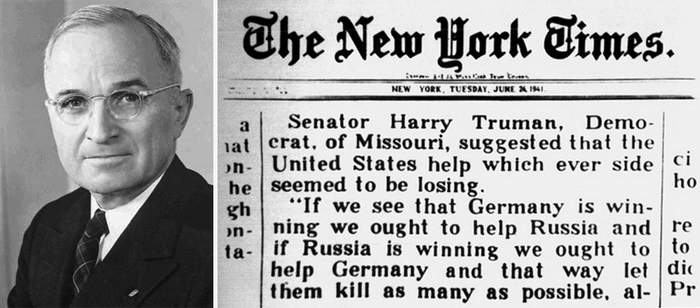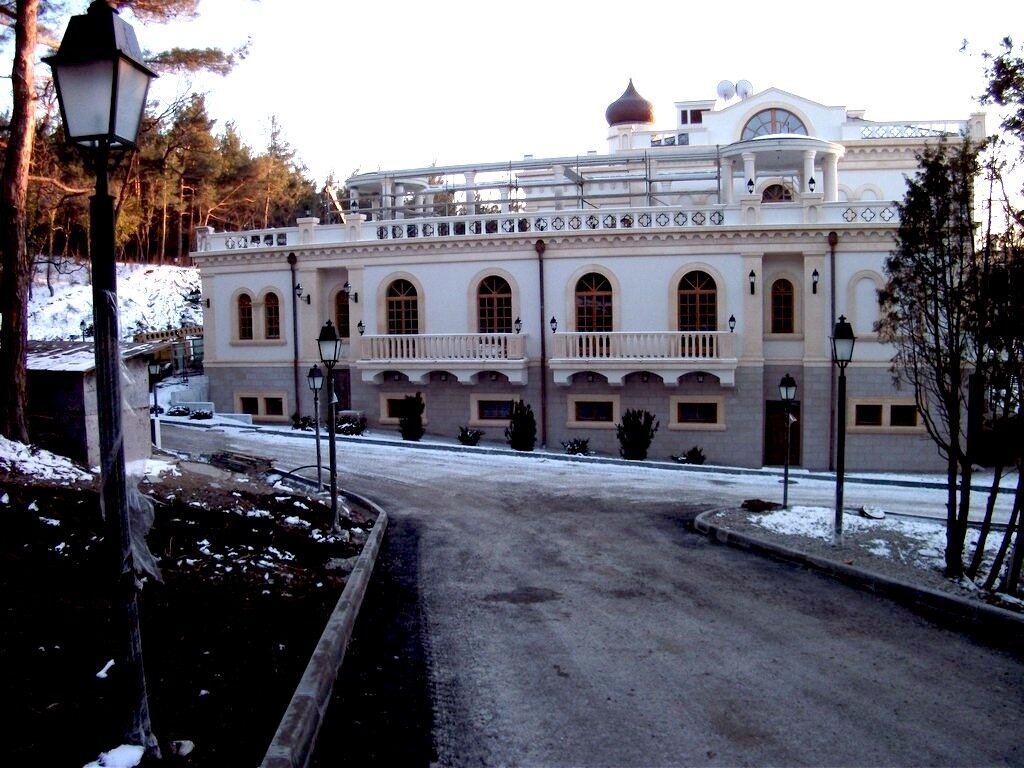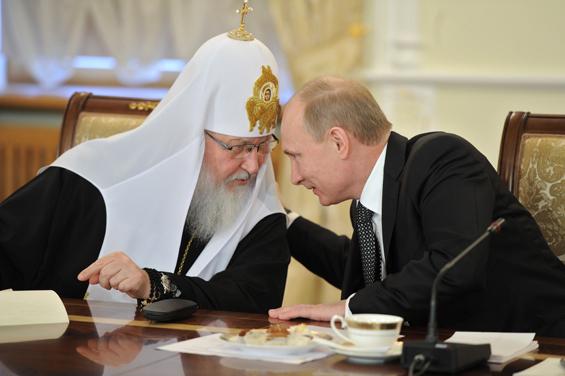Who is Loki? The habitat of Loki.
For his extraordinary intelligence and cunning. Loki has several heti (heiti, name substitution), including Hveðrungr - “The Divination of the Wolves”, 55, “List of the Inglings”, 32, Loft (Loptr) and Lodur (Lóðurr).
Biography
Snorri describes Loki as a handsome, short man. Brother Odin. Before the giants began the war with Asa, Loki lived for three years in Yotunheim with the giantess Angrboda. During this time, she gave birth to three children: her daughter, half-red, half-blue Hel (the goddess of the kingdom of the dead), the giant snake Jörmungand and the monstrous wolf Fenrir. He also has two children from Shigun: Nari and Vali (in other versions: Nari and Narvi, Vali and Tsarvi). In addition, the Song of Hundle states that Loki gave birth to all witches by eating the half-burned heart of an evil woman and thus conceived (The Song of Hundl, 41).
After that, Loki tried to hide in the image of a salmon, and hid in the waterfall of the fjord Franangre. Angry aces caught both his and his two children, Vali and Narvi. Vali turned into a wolf, and he tore his brother to pieces. Gut Loki tied with intestines and chained to a rock, to three stones. Skadi, avenging her father, hung a snake above his head, the poison of which constantly drips onto Loki's face. But the faithful wife of the god Shigyun holds a cup above him, into which poison is collected. When the cup overflows, Shigyun goes to empty it, and at this time the poison drips onto Loki's face, and he beats in torment. According to legend, this is the cause of earthquakes.
On the other hand, aces often resorted to the services of Loki in cases where it was necessary to show a trick. Loki had the ability to change his appearance. So, in the image of a beautiful mare, he lured a horse named Swadilfari to the mason otun who was building Asgard, which saved the aces from having to give the last goddess Freya to the wife. At the same time, Loki became pregnant, after which he endured and gave birth to the eight-legged foal Sleipnir, on which Odin subsequently rode. Thanks to Loki Asa, they received such treasures as the hammer of Thor Mjöllnir, the spear of Odin Gungnir, the ship Skidbladnir, the ring Draupnir and the boar Gullinbursti.
Origin
Some researchers claim that, as part of the triad of demiurges (Odin, Khenir and Lodur, or Loki), this god originally belonged to the generation of gods that existed before Odin, and was the son of the giant Ymir, and his brothers were Kari (air) and Khler (water), sister - Ran, the terrible goddess of the sea. Other mythologists, however, consider him the son of a giant Farbauti, who was associated with Bergelmir, the only survivor of the flood, as well as the son of Lauvei (leafy island) or Nal (ship). In this case, the only thing that connects Loki and Odin is the oath of twinning, which the Scandinavians gave each other.
Family
In addition to his marriage with Sigyun, Loki married the giantess Angrboda (promising grief), who lives in the Iron Forest and gave birth to three monsters: Hel - the goddess of death, the snake Midgard Jörmungand and the wolf Fenrir.
Loki also mistakenly ascribes marriage to Glut (radiance), who was married to Logi and gave birth to two daughters - Aizu (coal) and Enmir (ashes).
Etymology
The question of etymology is not resolved. The most common is the version of origin from Old Icelandic lúka - « to close, lock; end"(A possible reference to the role of Loki in Ragnarok as a chthonic deity).
Sometimes the name Loki is brought closer to the Baltic designation of the lit. bear. Lokys and the Greek designation of the Greek wolf. Λύκος .
There is also a version about the origin of the name Loki from the word “logs” - “fire”, which is the basis of the version that Loki is the god of fire.
Loki in modern culture
Music and theater
- Loki is a character in Richard Wagner's opera The Rhine Gold (1869, under the name Loge).
- Loki - the hero of the song "Loki, God Of Fire" from the album Gods of war Manowar bands.
- Loki is the hero of the song "Deceiver of the gods" from album of the same name Swedish viking metal band Amon Amarth.
Literature
- Under the influence of Wagner, the novel “Loki” (Loki. Roman eines Gottes, 1899) by the German writer and anthroposopher Ludwig Jacobovsky was written, a kind of “proto-fantasy” based on Norse mythology.
- The poem of I. A. Bunin "Balder" is dedicated to the myth of German-Scandinavian mythology, the central character of which is Loki.
- The poem by V. Ya. Bryusov "" was addressed to Andrei Bely
- Loki appears in modern fantasy as a person (“AD 999” by Jadrien Bell, 1999, “My Ragnarok” by Max Fry, “Certified Sorcerer” by Lyon Sprague de Camp and Fletcher Pratt, as well as in Lars-Henrik Olsen's book “Eric, the son of man ”), and in reincarnations (“ American Gods ”by Neil Gaiman and his comic book“ Sandman ”;“ Loki's Mask ”,“ Love is One Imagination ”by Roger Zhelyazny).
- Loki is a teacher of the Art of Combat and Love in Victor Pelevin’s novel Empire V.
- In the book of Yuri Nikitin “Revelation”, Thomas and Oleg, going down to the Underworld, see the chained Loki (as in myths), but in the next book “The Return of Thomas” they meet him among the other gods of Asgard.
- Loki as a Scandinavian god appears in the books “My wife is a witch” by Andrei Belyanin and “Invincible Olaf” by O. Lgov.
- In the book of Joanne Harris "Runes" Runemarks) Loki is the god of deception.
- In Harry Harrison's tetralogy (Hammer and Cross, Cross and King, King and Emperor, Emperor and Hammer), Loki is one of the Asgard Gods, cursed by Odin, but freed thanks to man.
Cinema and animated films
- A popular work, the plot of which is associated with Loki, is the Hollywood movie "The Mask" with Jim Carrey. The mask of the god Loki is the main veiled antagonist in this film.
- In the film “Masked Son”, Loki (in the role of Loki - Alan Cumming) is one of the main characters and a negative character.
- There is also a comic version of the god Loki in the Marvel universe (in the role of Loki - Tom Hiddleston):

- In the movie “Thor”, filmed from the Marvel universe, Loki is Odin’s adopted son, Thor’s stepbrother and temporary king of Asgard.
- In the movie Avengers, Loki is the main negative character.
- In the movie Thor 2: The Kingdom of Darkness, Loki is the main character, who is both positive (helps Thor) and negative (captures the throne by deception).
- Loki is one of the main characters in the comedy film "Dogma" (in the role of Loki - Matt Damon).
- Loki is also one of the main characters in the anime "Matantei Loki Ragnarok".
- In the series “Supernatural”, the name of Loki is one of the archangels - Gabriel, hiding on Earth (in the role of Loki - Richard Speight Jr.).
- In the SG-1 Stargate series, Asgard Loki kidnapped General O’Nill and sent him a clone to Earth.
- Loki as a Scandinavian god plays a major role in the anime "Fun of the Gods."
- Loki is one of the characters in the anime series Fairy Tail. Loki embodies Leo - the Chief of the 12 stellar spirits.
- Loki is one of the heroes of the manga and the series "Highschool DxD".
- Loki also appears in the movie "Mara and the Carrier of Fire" (in the role of Loki - Christoph Maria Herbst).
Computer games
Write a review on Loki
Notes
References
Literature
- Author: R.K. Balandin. One hundred great gods. - Moscow .: Veche 2000, 2003 Vadim Rudko. Gods. - Balti, 2009.
- M .: TsSPiM, 2014.332 s. S. 96-117.
|
||||||||||||||||||||||
Loki passage
“Well, yes, send the third company again,” the officer said hastily.“And who are you, not one of the doctors?”
“No, I am,” Pierre answered. And Pierre went downhill again past the militias.
- Ah, damned! - said the officer following him, pinching his nose and running past the workers.
“There they are! .. They are carrying, they are coming ... There they are ... they will come in now ...” suddenly voices were heard, and officers, soldiers and militiamen ran forward along the road.
A church procession rose from beneath the mountains from Borodin. In front of everyone, an infantry marched along a dusty road with their shakos and shotguns down and down. Behind the infantry, church singing was heard.
Overtaking Pierre, without hats, soldiers and militia fled to meet the marching.
- Mother are being carried! Intercessor! .. Iverskaya! ..
“Smolensk mother,” another corrected.
The militias - both those who were in the village and those who worked on the battery - throwing shovels, ran towards the church procession. For the battalion, walking along the dusty road, priests walked in robes, one old man in a hood with a clergy and chants. Behind them, soldiers and officers carried a large icon with a black face in a salary. It was an icon exported from Smolensk and from that time transported by the army. Behind the icon, in its circle, in front of it, crowds of military men walked, fled and bowed to the ground from all sides.
Having ascended the mountain, the icon stopped; the people holding the icon on the towels changed, the clerks lit the censer again, and the service began. The hot rays of the sun beat steeply from above; a faint, fresh breeze played with the hair of open heads and the ribbons with which the icon was removed; singing was heard quietly in the open. A huge crowd with open heads of officers, soldiers, militias surrounded the icon. Behind the priest and the clerk, in a cleared place, officials stood. One bald general with George standing on his neck right behind the priest and, not baptized (obviously a merchant), patiently waited for the end of the prayer service, which he considered necessary to listen to, probably to arouse patriotism of the Russian people. Another general stood in a warlike pose and shook his hand in front of his chest, looking around him. Between this official circle, Pierre, standing in a crowd of men, recognized some acquaintances; but he did not look at them: all his attention was consumed by the serious expression of faces in this crowd of soldiers and soldiers, who monotonously eagerly looked at the icon. As soon as the tired deacons (who sang the twentieth prayer) began lazily and habitually singing: “Save your slaves, the Virgin, from the troubles,” the priest and the deacon picked up: “We all resort to you in the Bose, like an unbreakable wall and intercession,” the faces again flashed the same expression of consciousness of the solemnity of the coming minute, which he saw under the mountain in Mozhaisk and snatches on many, many faces he had met this morning; and more often heads fell, hair was shaken, and sighs and blows of crosses on the breasts were heard.
The crowd surrounding the icon suddenly opened and pressed Pierre. Someone, probably a very important person, judging by the haste with which they shied away, approached the icon.
It was Kutuzov, circled the position. Returning to Tatarinova, he went to the prayer service. Pierre immediately recognized Kutuzov by his special, different figure from all.
In a long frock coat on a huge thick body, with a stooped back, with an open white head and a protruding, white eye on a splashed face, Kutuzov entered his diving, swaying gait in a circle and stopped behind the priest. He crossed himself with his usual gesture, reached with his hand to the ground, and, taking a deep breath, lowered his gray head. Behind Kutuzov was Benigsen and his retinue. Despite the presence of the commander in chief, who attracted the attention of all senior officials, the militias and soldiers, not looking at him, continued to pray.
When the prayer ended, Kutuzov went up to the icon, knelt heavily, bowing to the ground, and tried for a long time and could not get up from heaviness and weakness. His gray hair twitched with effort. Finally he got up and with a childishly naive extension of his lips he kissed the icon and bowed again, touching his hand to the ground. The generals followed suit; then the officers, and after them, crushing each other, stomping, puffing and pushing, with excited faces, climbed the soldiers and militias.
Swaying from the crush that engulfed him, Pierre looked around him.
- Count, Pyotr Kirilych! How are you here? Someone's voice said. Pierre looked around.
Boris Drubetskoy, brushing his knees with his hand, which he had soiled (probably also applying to the icon), smiling, approached Pierre. Boris was dressed elegantly with a touch of militancy. He was wearing a long frock coat and weaving over his shoulder, just like Kutuzov’s.
Kutuzov, meanwhile, went to the village and sat in the shade of the nearest house on a bench that one Cossack brought running and hastily covered another with a rug. A huge brilliant retinue surrounded the commander in chief.
The icon moved on, accompanied by a crowd. Pierre about thirty paces from Kutuzov stopped, talking with Boris.
Pierre explained his intention to participate in the battle and examine the position.
“Here's how to do it,” said Boris. - Je vous ferai les honneurs du camp. [I will treat you to the camp.] Best of all, you will see everything from where Count Benigsen will be. I am with him. I will report to him. And if you want to go around the position, then come with us: we are now going to the left flank. And then we will return, and you are welcome to spend the night with me, and we will compose the party. After all, are you familiar with Dmitry Sergeyevich? He’s standing here, ”he pointed to the third house in Gorki.
- But I would like to see the right flank; they say he is very strong, ”said Pierre. - I would like to drive the river from Moscow and the whole position.
“Well, you can do it later, and the main one is the left flank ...”
- Yes Yes. And where is the regiment of Prince Bolkonsky, can you tell me? Asked Pierre.
- Andrei Nikolaevich? we will pass by, I will lead you to him.
- Well, the left flank? Asked Pierre.
“To tell you the truth, entre nous, [between us,] our god knows the left flank in what position,” said Boris, trustingly lowering his voice, “Count Benigsen did not quite think so. He intended to strengthen that mound, not at all ... but, ”Boris shrugged. - The Most Serene did not want to, or they told him. After all ... - And Boris did not finish, because at that time Kaisarov, adjutant of Kutuzov, approached Pierre. - BUT! Paisiy Sergeich, ”Boris said, turning to Kaisarov with a free smile,“ but I’m trying to explain the position to the count. ” It is amazing how the brightest could so correctly guess the French plans!
- Are you talking about the left flank? - said Kaysarov.
- Yes yes exactly. Our left flank is now very, very strong.
Despite the fact that Kutuzov drove all unnecessary from the headquarters, Boris, after the changes made by Kutuzov, managed to stay at the main apartment. Boris was attached to Count Benigsen. Count Benigsen, like all the people with whom Boris was, considered the young prince Drubetskoy to be an invaluable person.
There were two sharp, definite parties in the command of the army: the party of Kutuzov and the party of Benigsen, chief of staff. Boris was at this last batch, and no one like him, knowing how to give servile respect to Kutuzov, made him feel that the old man was bad and that the whole thing was being conducted by Benigsen. Now the decisive moment of the battle has come, which was to either destroy Kutuzov and transfer power to Benigsen, or, if even Kutuzov had won the battle, to make it feel that everything was done by Benigsen. In any case, big rewards were to be handed out tomorrow and new people put forward. And as a result, Boris was in an annoyed excitement all this day.
For Kaisarov, Pierre was approached by others from his acquaintances, and he did not have time to answer questions about Moscow with which they bombarded him, and did not have time to listen to the stories that were being made to him. Animation and anxiety were expressed on all faces. But it seemed to Pierre that the reason for the excitement expressed on some of these faces lay more in matters of personal success, and that other expression of excitement that he saw on other faces and which spoke about issues not personal but general , issues of life and death. Kutuzov noticed the figure of Pierre and the group gathered around him.
“Call him to me,” said Kutuzov. The adjutant conveyed the desire of the brightest, and Pierre went to the bench. But even before him, an ordinary militia approached Kutuzov. It was Dolokhov.
- This one here? Asked Pierre.
- This is such a beast, it will crawl everywhere! - answered Pierre. - After all, he is demoted. Now he needs to jump out. He submitted some projects and climbed the enemy’s circuit at night ... but well done! ..
Pierre, taking off his hat, respectfully leaned in front of Kutuzov.
“I decided that if I report to Your Grace, you can drive me away or say that you know what I am reporting, and then I will not be killed ...” said Dolokhov.
- So-so.
- And if I'm right, then I will benefit the fatherland, for which I am ready to die.
- So-so…
“And if your lordship needs a man who wouldn’t spare his skin, then please remember me ... Maybe I will come in handy for your lordship.”
“So ... so ...” Kutuzov repeated, looking at Pierre with a laughing, narrowing eye.
At this time, Boris, with his court dexterity, moved next to Pierre in the proximity of his superiors and with the most natural look and not loudly, as if continuing the conversation, he said to Pierre:
“The militias — they put on clean, white shirts to prepare for death.” What a hero, count!
Boris said this to Pierre, obviously, in order to be heard by the brightest. He knew that Kutuzov would pay attention to these words, and really the brightest turned to him:
- What are you talking about the militia? He said to Boris.
“They, Your Grace, are preparing for tomorrow, for death, wearing white shirts.”
- Ah! .. Wonderful, incomparable people! - said Kutuzov and, closing his eyes, shook his head. - Peerless people! He repeated with a sigh.
- Do you want to smell gunpowder? He said to Pierre. - Yes, a pleasant smell. I have the honor to be an adorer of your spouse, is she healthy? My halt at your service. - And, as is often the case with old people, Kutuzov began to look absent-mindedly, as if forgetting everything he needed to say or do.
“In a hole in the middle of the forest, I saw bound
The misfortunes of the instigator, Loki the damned.
There Sigin sits, killing in misery
Over the flour of her husband ... "
The Divination of the Völva
After Thor, interest in the image of Loki, thanks to the interesting script of the film and the excellent acting of Tom Hiddleston, has grown incredibly. After The Avengers, it’s already obvious that in all subsequent pictures of this series, Loki will be one of the heroes - so firmly he fit into the plot.
In this post, there is something about who the real, Scandinavian Loki is, and also about where else you can meet Loki in literature.
Loki (also Loft, Lodur, Khvedrung) is one of the "main characters" of Scandinavian mythology. He appears in many stories as an important element of them - sometimes these are stories about Loki himself, sometimes about abstract things. In any case, the figure of Loki in the framework of the ancient Scandinavian picture of the world is one of the central ones.
There are, in fact, two Loki, however strange it may sound. They differ from each other in character, deeds and, more importantly, origin.

So, Loki, who became the prototype for the hero of the movie “Thor” and “Avengers”, was the son of Etun Farbauti and a citizen of Lauvei.
Another Loki, the one who is Lodur, and who, in addition, also Yafnkhar and Odin knows who else, is so dark that I’ll write about him only what I could understand from various sources: this is Odin’s brother (he had two brothers , who are considered his personalities, and who, nevertheless, ruled in his absence and even shared the same wife with him, called them Vili and Be), he is the lord of Fire and he and Odin created Midgard from the body of the defeated giant Ymir, and then a man and a woman. We will end with this about the other Loki, and simply we will no longer confuse him with the “real” Loki, who was not an ace, the lord of Fire and did not create Midgard (Earth), as well as men and women.
The "real" Loki had a bunch of other, more important things.
What did Loki do?
Among the important matters of Loki is fatherhood. So, Loki is the father of the following creatures:
- Hel is the mistress of the world of the dead.
- Fenrir is a wolf that eats up the sun during Ragnarok.
- Ermungard is the world Serpent, which appears in literature even more often than Loki himself.
These three were born to him from an alliance with the giantess Angrboda.
- Nari and Narvi are two less colorful children from Shigyun's wife.
In addition, Loki is the mother. Once he had to cover the back of the aces in a small conflict related to the extradition of Freya. In general, he turned into a mare and met with a horse (whose name went down in history, unlike many other names of Scandinavian mythology ...) Swadilfari. As a result, after a while, Loki gave birth to the eight-legged stallion Sleipnir, on which Odin now rides.

Loki is also known as a good deceiver. He tricked:
- Actually, the builder Asgard, who broke off with Freya after the shocking act of Loki, the result of which was Sleipnir.
- The brightest of the aces, the citizen of Balder, the son of Odin, whom Loki first killed with the hands of the blind Hyud, and then refused to mourn the appearance of the giantess Tokk, as a result of which Balder remained in the kingdom of the dead (despite the request of the aces, henpecked Odin).
- Poor dwarf Andvari, who swam in the guise of pike and didn’t touch anyone at all, and whom Loki not only caught, but also cleaned to the skin to pay for his own mistake with the murder of an otter, who turned out to be the son of an authoritative citizen.
Loki is also known for an act that he did not commit, but which he was destined for by the Norn. In the prediction of the Velva, Loki “opens” Ragnarok with his children. He will fight Heimdall (who will sound a horn announcing the beginning of Ragnarok), and they will kill each other.
Who could Loki turn into?
Loki had the ability to completely change his appearance, so that none of the living, including the aces, could recognize him. Among the most curious transformations of Loki:
- Flea - to steal Freya’s jewelry.
- Salmon - to escape from aces.
- Horse - to lure Swadilfari.
In general, Loki’s talents for transformation are not limited by anything and he used them to the full.

Punishment loki
After one day (apparently due to a severe nervous breakdown) Loki told all the gods who they are and where they belong (that is, in Russian, sent them in three letters), he was chased by the whole royal cavalry and the whole royal army .
They caught up with Loki, despite the fact that he managed to become a salmon, tied the intestines of his own son Nari (that was from his legal wife), then chained him to a rock, to three stones (why not to twenty-six, actually?), after which the skier Skadi (part-time hoarse giantess and the spouse of Nyorda) hung a snake above him, the poison of which drips onto his face, causing incredible suffering. The vengeful woman, apparently, could not forget how Loki gave birth to what (covering the causal place with a goatee) danced beside her in order to make her laugh, because the giantess had set such a condition as her dowry.

Loki Shigyun’s faithful wife could not endure her husband’s suffering and began to hold a bowl over his head so that poison would drip into her. When the bowl overflows, Sigyun pours out the poison, but at this time the poison falls on Loki's face - it was believed that this is what causes earthquakes, because poison in the face - it hurts.
The role of Loki in myths
Actually, Loki was a prankster. As it is now fashionable to say, a trickster. Everyone loved him because he was joking so cheerfully, but when he joked with his superiors, he was asked to leave the stage.
Along with jokes and practical jokes, Loki makes far more serious deceptions and frauds. He has no reasons for this, but he does not need them. The image of Loki has been and remains synonymous with duplicity and deceit, although the mythological Loki does not perceive the concepts of “lie” and “truth” at all. Loki is a bully, not because he is a bastard, but because it is supposed to be a fairy tale.

Loki’s children (Fenrir, Hel, Sleipnir, Yermungard) appear in very different forms in Western culture very often. Their names literally became common nouns, more and more often the authors do not explain what exactly in their text means by the word "Ermungard", etc.
Books on the canonical image of Loki:
- Elder Edda, Samund the Wise (pos.)
- Younger Edda, Snorri Sturluson
- “Asgard - the city of the gods”, Vladimir Shcherbakov
- “Gods and Heroes of the North”, Patrick Colum
Fiction books with Loki in one of the central roles:
- Asgard Unlimited, Michael Stackpole
- Runic Magic by Joanne Harris
- The Mask of Loki, Roger Zhelyazny
- Roaring Trumpet, Sprag de Camp
Fiction books in which Loki is present but not a central hero:
- American Gods, Neil Gaiman
- My Ragnarok, Max Fry
- “Castle at the junction of the worlds”, Victor Chirkov
Useful links:
Gallery of jen-and-kris - artists who have a lot of very beautiful or funny works on the Marvelian Torah and Loki.
The wiki is a good article on Loki, although it is confused in some facts.

What do we know from myths, history, and revelations?
Logs are the powerful Scandinavian spirit of fire. In myths, he is referred to as the second son of the ancient frosty tour of Mistblindi, also known as Forniot, and the fiery giantess, born immediately after the Flood. Loga has two brothers: the eldest is Kari, the North Wind, and the youngest is Egir, the king of the seas. Logi himself swore allegiance to the king of Utgard-Loki and entered his service. He figures in a myth about how Thor and Loki met this wizard king and were forced to compete with his friends and relatives in different skills. Loki said that he knows how to eat faster than anyone, and Utgard-Loki suggested that he measure his strength with one of his servants - namely Logi. And Logy won a very convincing victory: unlike Loki, who ate only meat, he also ate bones and dishes. After that, he discovered his nature: it became clear that this is a very old fire giant, with whom Loki could not compete as a younger one.
Friends and relatives sometimes called Logs “High Logs” (Halogi), because he is very tall - even for a giant. His wife's name was Glut ("Burning Coals"); she bore him two daughters - Enmira (Ashes) and Aizu (Embers). But they left him a long time ago, and now Logi lives alone in his black mountain cave. Literary sources also mention a mortal named Logi / Halogi, in whose honor the ancient Scandinavian kingdom of Halogaland got its name. Perhaps the Logi-man repeated in his life the archetypal model on which the history of the Logi-giant was based; but we cannot state this with confidence.
Logs - a very old ethin, one of the ancient magical trinity, consisting of Kari, Logs and Aegir (Wind, Fire and Sea). This triad was worshiped before the arrival of the Indo-European invaders. Some scholars (for example, Helen Gürber in the "Scandinavian myths and legends") suggest that these three giant gods were the heroes of an ancient creation myth that existed before the myths about aces and vanes. Together they make up a triad of pristine elements that formed the Earth: Sea, Flame and North Wind. Preben Mullengracht, a researcher of Scandinavian mythology, hypothesizes that these three elements, Sea, Flame and North Wind, were an alternative to the magical four of elements (Earth, Water, Fire and Air). The historical sea kings of the Orkney Islands built their ancestry to these three brothers.

Logs
I can make you dinner
but just as easy
i can burn you alive.
I devour everything: food and table.
Muspellheim the Messenger
Plenipotentiary Governor of the Sunnah,
I dance in all worlds except one.
I outwitted the one who shares my name,
I nest in his hair;
It was once in me that the Carls fettered Mjolnir.
I fight on all sides.
I sleep in flint and chair
and under the red start buttons.
Enough for a single spark.
Carve a spark?
- This poem is in the public domain. You can freely distribute, specifying the author and source and reproducing the text of this license, but you can not modify and transform it or take as a basis for your own works. -
The god Loki is the most mysterious character in Norse mythology, belonging to the caste of the Scandinavian aces. Beginning his life with innocent pranks, over the years he has turned into a cunning and evil god, capable of reincarnating to achieve his goals. His whole life consists in helping some gods and giants and in harming others. Loki is unpredictable in his actions; he, as an element, is inseparable from danger and destruction, leading to change and the birth of a new life. It coexists at the same time good and evil, death and survival. He is called for help when there is no longer any hope of salvation. And at the same time, not knowing the barriers to malicious acts, Loki represents the embodiment of evil, which contributed to the death of the gods and the destruction of the traditional world order.
Loki (god): mythology will tell about his family
His parents are the giant Farbauti and Lauvea (Nal). The Scandinavian myths say that Loki had two brothers - Henir and Odin. Loki's first wife was Glut, akin to the elements of fire, from which he had two daughters. The second time he married the giantess Angrbod, from whom three monsters were born - Hel, the goddess of the kingdom of the Dead, the wolf Fenrir and the giant snake Yermungand. His third wife was a loyal Shigun, who gave birth to sons Nari and Narvi. Loki also tested himself in a maternal role, turning into a mare, he seduced the stallion Swadilfari, and gave birth to him the wonderful eight-legged horse Sleipner, able to travel across nine worlds. But this Loki was not limited to the continuation of a kind. One of the legends says that he became the progenitor of all witches when he ate the charred heart of an evil woman, which is why he conceived and gave birth to the offspring of sorceresses.
Appearance and character

Loki is a skilled werewolf
Loki is known as the skilled god of transformations. His unique ability to transform into any animal, changing his appearance and gender gave rise to the expression "mask of the god Loki." To accomplish his good and evil designs, he turns into a horse, fish, insects, birds and pinnipeds. But most of all, a spider is suitable for him, similar to it in name in the Swedish language - lockke. To achieve his goal, he often takes on a feminine appearance - the goddess Freyja, the giantess Tekk and Angboard, uses dressing in women's clothing. Loki's magical attributes are magical shoes.
God of fire
In one version of the origin of Loki - the god of fire. It is believed that his name came from the word "logs" - fire. Like it or not, but in the distant Stone Age, people revered Loki as the god of fire. His element was an indomitable fire burning with a bright flame. There is a legend that once the God of fire Loki arranged a competition with his own element - the Spirit of fire. Its essence is who will eat more. God himself mastered only part of the available food, but the Spirit of fire grew into a giant and began to eat everything in a row - food, dishes, a table, leaving behind only ashes. Loki's first wife when he was the Fire God was Glut, which means "radiance." She bore him two daughters - Aizu (coal) and Enmira (ashes). All family names were closely associated with fire and heat, so the peasants honored Loki as the god of the home. In the deepest sense, Loki was the God-Bearer, awakening the divine fire hiding in every earthly being.
Loki Habitat
Loki never had a permanent residence. He traveled through nine worlds, but most often he was met in Jotunheim. In Asgard, for a number of reasons, he appeared very rarely, except when he was scheduled to meet with an ace. No one knows where he is now, whether he has been freed from the shackles and left the dark cave, but it is believed that this does not prevent him from transforming into another guise and traveling in all nine worlds. Even the expulsion from Asgard, a cruel punishment that brought deep wounds to the body and soul, could not change him. He remained strong, cunning and dangerous for those who did not please him.

Loki in the modern world
People born from January 21 to February 19 are considered born in the month of Loki. The insidious deity tries to influence their fate and constantly subjects them to various tests, checking for endurance, honesty and frankness. Passed with honor checks are rewarded with various gifts of fate and fulfillment of desires. If you treat Loki with neglect, you can get various troubles from him. He can connect his fans to his unquenchable energy and will protect him from treachery, deceit and fraud. Although he likes to demand a fee for help, it is better to immediately contact him with a gift. Of the presents, he prefers spirits, sweets, pies, funny trinkets, as well as loud fireworks. Accepts offerings in size and price, which a person can afford for his financial situation. In order for Loki to be kind to you, you should light candles more often and pronounce the words of the conspiracy: “I light candles, I invoke Loki. Lightning and fire, become a mountain for me! ”
The god Loki, the most cunning liar, the god of mischief and deceit, the most charming of all the gods in Norse mythology. He is cunning and insidious, he was inherent in the rarest quality for a mythological character - a change in character. Once, at the dawn of time, he helped in the creation of the world and countless times helped other gods. Later, his leprosy became more malevolent, for example, when he cut off the hair of the goddess Siv. And then the anger finally took possession of him, which was manifested, for example, in the murder of Balder, which Loki himself rigged.
Loki was married three times. His first wife was Glut, and she bore him two children - Einmuria and Aiza; all three names are associated with fire and its heat, because Loki was also considered the god of the hearth, peace and relaxation, which is why the peasants revered him as the greatest of the gods. Children from his second marriage were less pretty. The giantess Angbroda gave birth to Loki of three children. The first daughter is Hel, the goddess of death; one son is Yormungand, the World Serpent, and the other is Fenrir, the terrible wolf that threatened the very existence of the gods. Loki's third wife was the beautiful Shigun. Her children were called Narvi and Vali.
Children of Loki and Angrbod: Hel, Jörmungand and Fenrir
There are many more stories about the Scandinavian god Loki than about other gods. He could be kind, helped many, entertained them. Once the giantess Skadi went up to Asgard to avenge the murder of her father Tiassi. Loki began to distract her, telling various dirty stories, and Skadi changed her anger to mercy.
Sometimes Loki was extremely cruel. Once, while walking with Odin and Hoenir along the river, Loki noticed an otter that was about to eat salmon. God threw a stone at her and killed her. But it was not a simple otter, but Otter, one of the sons of the troll king Hreidmar. Thus began the notorious story of Andvari's gold and the ruin of the Hreidmar family.
As you know, the children of Loki and the giantess of Angrboda were Hel, Yormungand and Fenrir. It was a marriage forbidden by the gods, in a cave, but they grew so fast that Odin found out about their existence. He ordered Loki to destroy them before they grew enough to become a threat to the whole world. One overthrew Hel in Niflheim, and in this dark kingdom she became the goddess of death. He threw the Yormunganda snake into the deep sea, so the World Serpent appeared, which, lying in the middle of the sea, encircled the seabed and bites its tail.
The third son of Loki and the giantess Angrboda wolf Fenrir. One brought him in to cultivate kindness in him. But Fenrir quickly increased in size, and at the same time ferocity grew in him. Then the gods decided to make the strongest chain and tie it so that he could no longer threaten them. After Fenrir broke two chains, the dwarves weaved the finest fetters - Gleipnir. Fenrir allowed her to test her strength, but only on condition that one of the gods put his hand in his mouth to guarantee that no magic would be used against him. None of the gods dared. Tyr put his right hand in the jaws of the wolf and immediately lost it. Then the wolf was put into the underworld, where he howled wildly. To silence him, the aces put a sword in his mouth: the hilt rested against the tongue, and the point against the palate, and blood flowed from his throat in a huge river.
The gods of Norse myths captivate Loki
Loki's leprosy became more and more vicious. With his love of lies and other people's secrets, he constantly quarreled the gods with each other. He made one of the most disgusting tricks by cutting off Siv's magnificent golden hair. As a result of this and his subsequent bet with Brock and Sindri Loki, he suffered from pain because his lips were sewn together.
 Soon, Loki abandoned petty atrocities and was possessed by the vengeful passion of annihilation. He began with Balder, and then appeared to the gods for a farewell dinner and insulted them in the most caustic terms. The gods considered that they were enough, and decided to associate the villain. Loki could change shape, and turned into a fish. The gods of the Scandinavian myths: and Kvasir still managed to catch him. They led him into a deep cave, forced Loki Vali's son to turn into a wolf and tear his brother Narvi up his throat. Ases took out his guts and tied Loki to three huge stones. The bonds turned into iron. The giantess Skadi took the poisonous snake and hung it over Loki's head so that the poison would drip onto his face until the end of his life. Each drop of poison inflicted unbearable pain on the overthrown god. During the great battle at the hour, the gods would have to regret very much that they had treated Loki so cruelly.
Soon, Loki abandoned petty atrocities and was possessed by the vengeful passion of annihilation. He began with Balder, and then appeared to the gods for a farewell dinner and insulted them in the most caustic terms. The gods considered that they were enough, and decided to associate the villain. Loki could change shape, and turned into a fish. The gods of the Scandinavian myths: and Kvasir still managed to catch him. They led him into a deep cave, forced Loki Vali's son to turn into a wolf and tear his brother Narvi up his throat. Ases took out his guts and tied Loki to three huge stones. The bonds turned into iron. The giantess Skadi took the poisonous snake and hung it over Loki's head so that the poison would drip onto his face until the end of his life. Each drop of poison inflicted unbearable pain on the overthrown god. During the great battle at the hour, the gods would have to regret very much that they had treated Loki so cruelly.
Views 11 523
